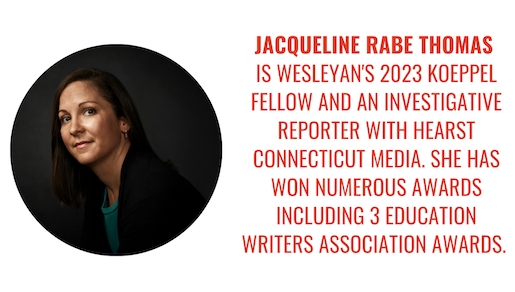I think many liberal arts colleges (and Ivies and many others) have allowed for the creation of an environment in which there are significant consequences to saying certain things that disagree with a political orthodoxy that for shorthand I’ll label as DEI, though it is probably broader. Taking Harvard as an example, because it has been in the news, Harvard had a research professor who taught a very popular course on Hormones and Behavior who basically was frozen out because on a book tour, she made some statements about sex (there are only two kinds of gametes) while respecting everybody’s opinion to choose their own gender – my sense is that her statements were a little sloppy and tailored to the Fox show she was on. An apparently brilliant black economist similarly had his pay eliminated and his lab closed for two years for two years, derailing his career – I am not sure what went on but I think I read that he made some sexually suggestive statements in his lab that he says were joking but that some female students found offensive. A mandatory Title IX training at Harvard last year warned all undergraduate students that “cisheterosexism,” “fatphobia” and “using the wrong pronouns” qualified as “abuse” and perpetuated “violence” on campus." Larry Summers was forced to resign when he made impolitic but not necessarily scientifically innacurate statements about men and women’s IQ – median are the same and but men are overrepresented in the upper and lower tails – and speculated that this could imply an overrepresentation of men at the high end of science. (Like Gay, this statement would probably not have caused his expulsion if he had not already insulted all kinds of people and more importantly tried to change the academic schedules to move first term exams from after Christmas/New Years to before.)
So, people tread very carefully around certain subjects and would generally avoid certain lines of research because they do not want to be hounded or shut down.
That is probably why the failure to stand against calls for genocide of Jews, whether direct or veiled, caused a firestorm. Harvard’s Office of Diversity, Equity, Inclusion and Belonging actually considers Jews a minority (not true in most other schools including Stanford) but never had any programs to deal with antisemitism. Harvard’s unwillingness to act (by making unequivocal statements like acknowledging/condemning the rapes of Israeli hostages) highlighted a sense that the implementation of DEI and its underlying philosophy at Harvard was really faulty. Incidentally, I know quite a few professors who share this discomfort with the implementation of DEI who, like me, are probably liberal-leaning centrists or liberals. Some might have said progressive until recently.
I don’t think Harvard is that unusual. My son attended a NESCAC school a number of years ago. At least one day and maybe two days of orientation were devoted to DEI training, with a particular focus on male / female relationships and consent (the Me Too era). I told my son “Do not say anything. There is nothing you can say that won’t hurt you later.” According to my son, there was an incredibly muscular, incredibly handsome African American male student whose name was actually Adonis. Adonis was perplexed by some of the conversations about consent. “You mean, if she crawls into my bed without my asking (apparently not unusual in his experience), I have to ask her for her consent?” He was ridiculed by the DEI trainer and a not entirely positive reputation followed him for his four years there. (Remembering my warning, my son actually tried to signal to the kid to stop talking and cut his losses, but he wasn’t successful).
I think the danger is that institutions will throw out the baby (in my mind, the US still has an obligation to help the descendants of slaves and Native Americans, both groups that have been dramatically and systematically harmed by government policies) with the bathwater (the over-reaching implementation of DEI programs to focus on things like fatphobia and preferences for other groups that arguably haven’t been deeply harmed by US government actions like slaves and their descendants and Native Americans, the notions of oppressor/oppressed groups that are etched in stone, etc.).
From the OP’s perspective, I think the kerfuffle at Harvard is going to cause the pendulum to swing in other direction a bit. And, as @Blossom and others have said, certain fields will suffer much more from attitude orthodoxy. Economists and business schools tend to be more conservative. Sociology departments less so. Certain LACs really encourage the education of social justice warriors. My impression was that Wesleyan was one of these. Williams much less so. So I think you will need to ask parents of current students. The students have been getting lots of the orthodoxy so may be less aware.
Some schools – like U of Chicago – probably never shared the same political orthodoxy and others have a conservative branch (Stanford has the Hoover Institution, which houses conservatives).
